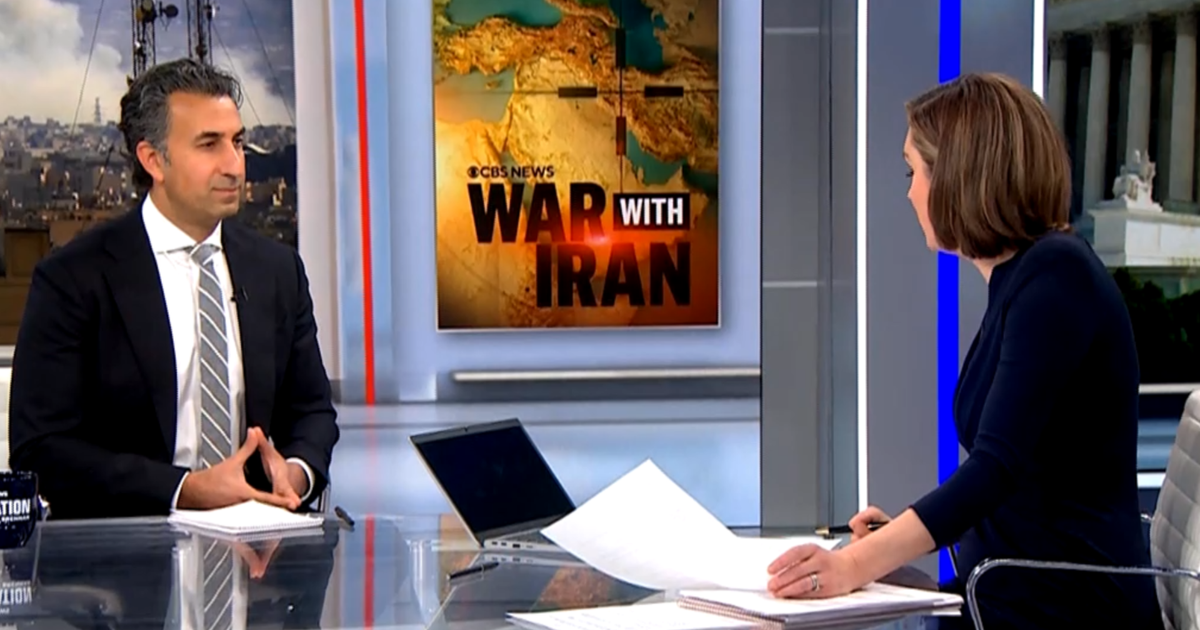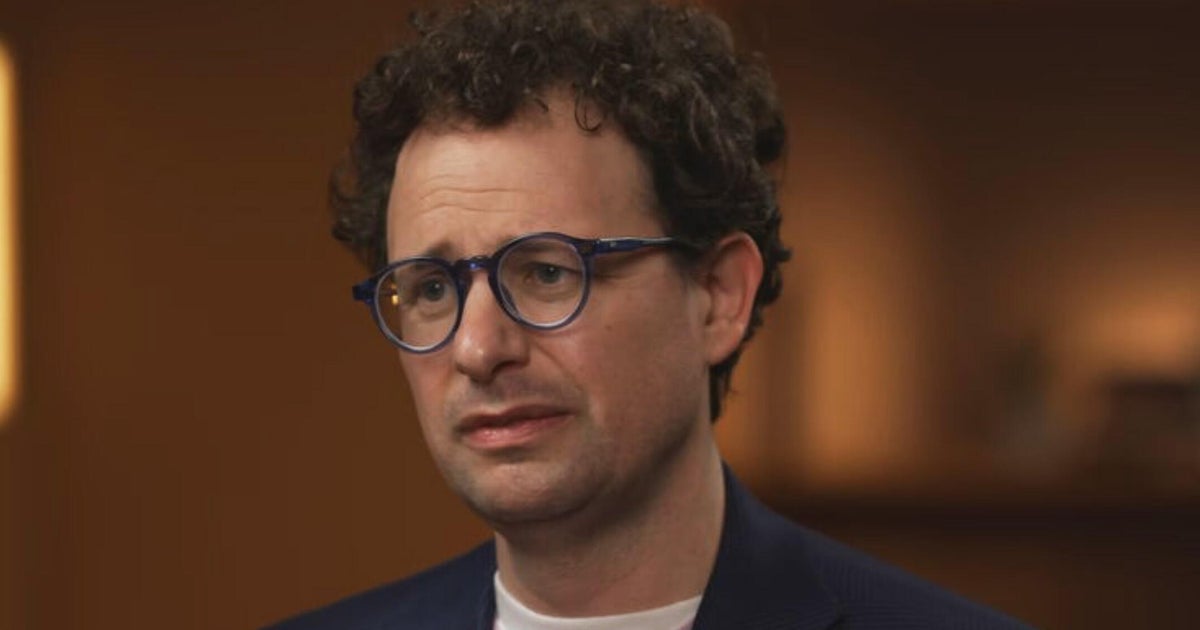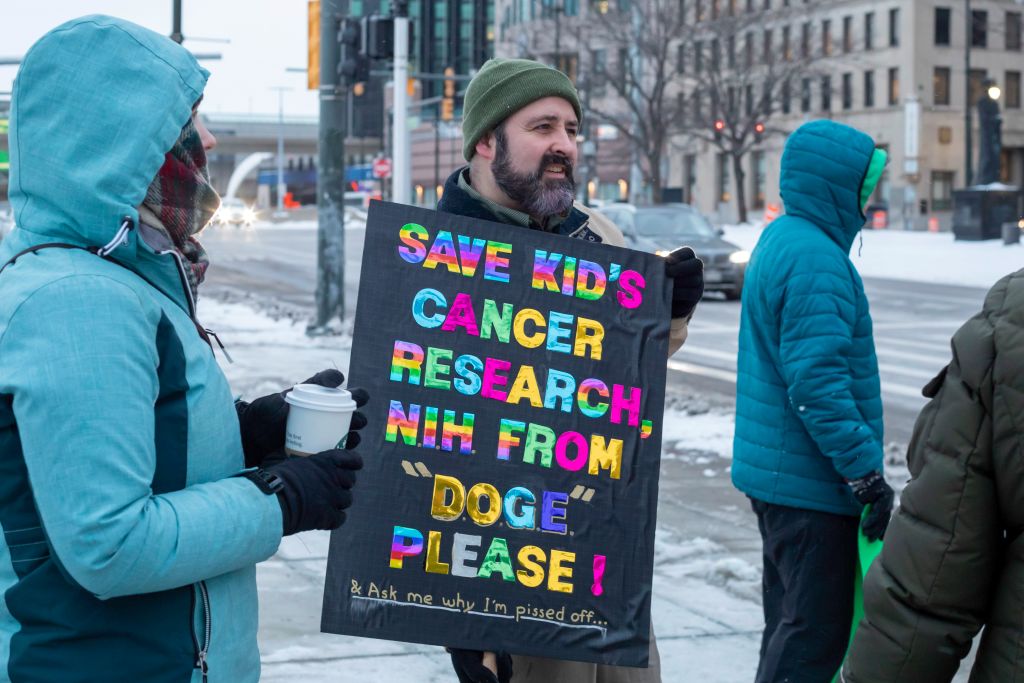Transcript: Dr. Anthony Fauci discusses coronavirus on "Face the Nation," April 5, 2020
The following is a transcript of an interview with Dr. Anthony Fauci that aired Sunday, April 5, 2020, on "Face the Nation."
MARGARET BRENNAN: We turn now to Dr. Anthony Fauci, the director of the National Institute of Allergy and Infectious Diseases at NIH. Dr. Fauci, thank you for what you're doing and thank you for making time for us.
DR. ANTHONY FAUCI: Good to be with you, MARGARET.
MARGARET BRENNAN: We heard from the president that there will be a lot of death in the coming weeks. Dr. Birx said it's not the time to go to the grocery store or the pharmacy. What should Americans be preparing for?
DR. FAUCI: Well, this is going to be a bad week. MARGARET, unfortunately, if you look at the projection of the curves, of the kinetics of the curves, we're going to continue to see an escalation. Also, we should hope that within a week, maybe a little bit more, we'll start to see a flattening out of the curve and coming down. The mitigation that we're talking about that you just mentioned is absolutely key to the success of that. So on the one hand, things are going to get bad and we need to be prepared for that. It is going to be shocking to some. It certainly is- is really disturbing to see that. But that's what's going to happen before it turns around. So we'll just buckle down, continue to mitigate, continue to do the physical separation because we got to get through this week that's coming up because it is going to be a bad week.
MARGARET BRENNAN: Are you saying, Doctor, that despite the deaths that we may see, that mitigation is working and that you do have this outbreak--
DR. FAUCI: Yes.
MARGARET BRENNAN: --under control?
DR. FAUCI: I will not say we have it under control, MARGARET. That would be a false statement. We are struggling to get it under control, and that's the issue that's at hand right now. The thing that's important is that what you see is increases in new cases, which then start to flatten out. But the end result of that, you don't see for days if not weeks down the pike, because as the- as the cases go down, then you get less hospitalizations, less intensive care, and less death. So even though you're getting a- really improvement in that the number of new cases is starting to flatten, the deaths will lag by, you know, one or two weeks or more. So we need to be prepared that even though it's clear that mitigation is working, we're still going to see that tail off of deaths. So the first thing we want to look for is to see on a daily basis: are the number of new cases starting to stabilize? We've seen that in Italy. You just mentioned that correctly. We're going to hopefully be seeing that in New York very soon. And that's the first sign of that plateau and coming down.
MARGARET BRENNAN: So when Governor Cuomo says we're- New York is not yet at the apex, what does that actually mean? And what happens on the other side of that apex?
DR. FAUCI: You know, what the governor is saying is that we are still going to see an increase. The curves that we show at the conferences often is that the epidemic curve goes up, and it hits the top a bit and then it starts coming down. So what Governor Cuomo was saying is that we haven't yet reached that peak. And when you do, you'll start to see a bit of a flattening and come down. So where we are right now is really approaching that apex. And that's why what he's saying and what we're saying is that this next week is going to look bad because we're still not yet at that apex. And I think within a week, eight days or nine days or so, we- hopefully you're going to see that turnaround.
MARGARET BRENNAN: You have flagged that you see this virus now spreading in the developing world and communities where people don't really have the luxuries that we have of working at home. What does that mean for the risk of re-infection here in the United States?
DR. FAUCI: Well, you bring up a very good point, MARGARET. Unless we get this globally under control, there's a very good chance that it will assume a seasonal nature in the sense that even if we, and I- and I hope it's not just if but when we get it down to the point where it really is at a very low level, we need to be prepared that since it unlikely will be completely eradicated from the planet, that as we get into next season, we may see the beginning of a resurgence. And that's the reason why we're pushing so hard and getting our preparedness much better than it was, but importantly, pushing on a vaccine and doing clinical trials for therapeutic interventions so that hopefully if in fact we do see that resurgence, we will have interventions that we did not have in the beginning of the situation that we're in right now.
MARGARET BRENNAN: So you said yesterday that there are three things you think this country needs to have in place before some of these restrictions are pulled back: the ability to test, to isolate and to do contact tracing. How close are we to meeting those requirements you laid out?
DR. FAUCI: We're not 100 percent there yet, but the people who are responsible for getting these tests out there, it's very clear that we are much, much better off than we were in the sense that in the next week or two, we'll have an extraordinary amount more capability of doing the kinds of testing that's essential. Because testing is not only important to be able to identify individual cases, isolate them and contact tracing. But we really do need to get a feel for what the penetrance of this infection is in society. That becomes critical when you plan to start to get back to normal or at least take those first steps to getting back to normal. You have to know what's out there. You have to know what you're dealing with. So testing becomes even more important than what we've been speaking about in the past.
MARGARET BRENNAN: Do you wear a mask when you're not on television?
DR. FAUCI: Well, you know, my- my life, is- is- is pretty different, I- I stay six feet away from anybody that I can. If I go out, which I really don't do very much because of- of my life as it is now, MARGARET, I would and do. If you go to a situation where you don't have control over that six-foot distance, that you wear a mask. In fact, my wife just went out to get us some food for- for the morning, and she doesn't wear a mask in the house or when we go out and run. But when she gets into a situation, as I would, where you don't have the power or the control of staying six feet away, I would recommend doing what the CDC as I think appropriately and correctly said. It's- it's an adjunct. It's an additional way to help protect you and to have you help protect others.
MARGARET BRENNAN: Doctor, what would you tell our viewers who live in South Carolina, Arkansas, Wyoming, South Dakota, Iowa, Nebraska, North Dakota, Utah, the eight states that do not have stay at home orders? What does that do to the White House models of projected deaths? Are they putting the rest of the country at risk?
DR. FAUCI: Well, it isn't that they're putting the rest of the country at risk as much as they're putting themselves at risk. So every time I get to that podium in the White House briefing room, MARGARET, I always essentially plead with people to please take a look at those very simple guidelines of physical separation. And they're very, very clear. They're like multiple different ways that say all the same thing. Physically separate. Six feet away. Ten people in a crowd. Avoid any interaction like movies and sports events and theaters and things like that, even in areas where you're not having a big explosion of cases. To the best of your ability, do that because this virus doesn't discriminate, whether you're in a small town, in a relatively--
MARGARET BRENNAN: Yeah.
DR. FAUCI: --secluded area of the country versus whether you're in a big city. And sooner or later, you're going to see a surge of cases.
MARGARET BRENNAN: OK.
DR. FAUCI: So I would urge people to please take a look at that.
MARGARET BRENNAN: Very quickly, is hydroxychloroquine preventative against this virus? Yes or no?
DR. FAUCI: You know, as I've said many times, MARGARET, the data are really just at best suggestive. There have been cases that show there may be an effect--
MARGARET BRENNAN: Yeah.
DR. FAUCI: --and there are others to show there's no effect.
MARGARET BRENNAN: OK.
DR. FAUCI: So I think in terms of science, I don't think we could definitively--
MARGARET BRENNAN: All right.
DR. FAUCI: --say it works.
MARGARET BRENNAN: Thank you. Good luck to you, doctor. We will be right back with a look at our struggling economy. Stay with us.



